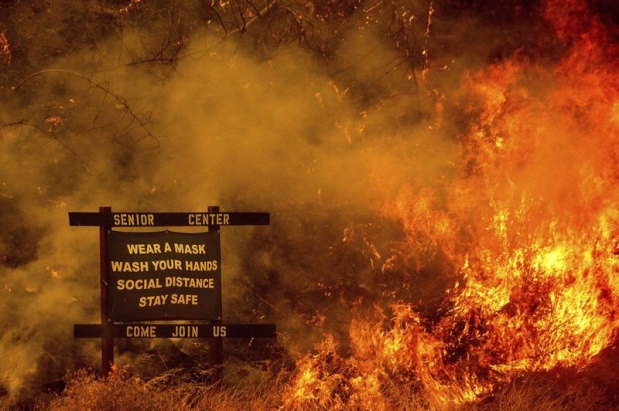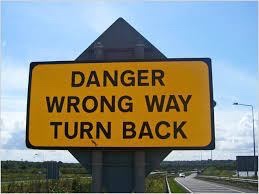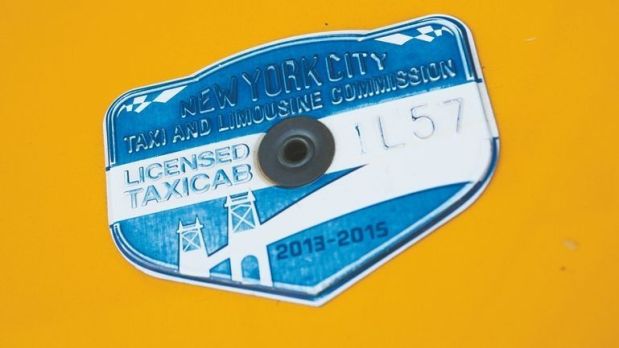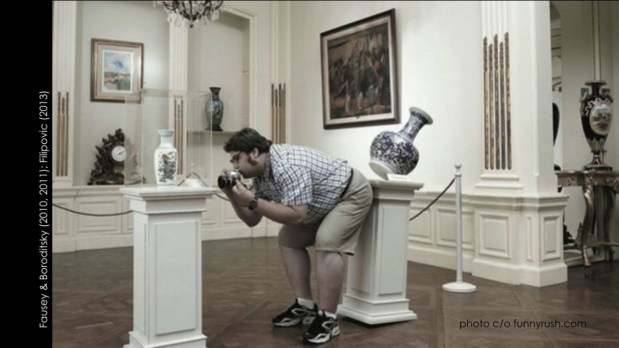José Andrés, another famous chef, went to Puerto Rico immediately after Hurricane Maria, to help figure out how to feed the people. Instead of figuring it out, he and his associates found themselves simply doing it, from the moment they landed. Actually before they landed, in calls to as many chefs as he could reach there, the plan was, “Let’s not plan, let’s not meet, let’s start cooking!” FEMA didn’t grasp the urgency of it. It wasn’t about “how to feed the people in the weeks to come.” It was how to feed the people NOW.
I am learning about this from a TED Talk (“How a team of chefs fed Puerto Rico after Hurricane Maria”) right now. I love TED Talks. They keep me sane.
So, the first Monday they were there, they did a thousand meals. By the following Sunday, they were doing 25,000. They kept outgrowing their spaces. 25,000 became 50,000. They moved their operation to the Coliseum. They became the biggest restaurant in the world. They were making close to 70,000 meals a day. From one location alone.
Volunteers showed up by the hundreds. At any given moment, 700 volunteers were working on feeding the hungry. This was not plastic food. It was real food, food that people recognized, food that brought comfort, as well as sustenance.
Get this: at one point, FEMA was actually asking him, “How are you able to do this? How are you able to get the food to prepare?” He replied, “Simple: by calling, and paying, and getting.”
And at this point in this Talk, I just paused and cried for a few minutes. I don’t like crying! But every day I’m simply stunned, at some point during the day, by what our current president and his administration are doing to this country. And what they are NOT doing FOR our country. And Puerto Rico is part of this country. What they did there should be enough for every one of them to be impeached at the very least, or perhaps sentenced to death. Instead, they skate by, lying their way out of one accountability after another.
When it comes to people, families, feeding people, making sure that people have roofs over their heads, that the sick are being cared for, that people have at least some glimmer of hope for a meal and a place to lay down their heads… these are the bedrocks of basic civilization anywhere, everywhere. And in this country? We don’t even think about these things, because we take them so for granted. So to look at these people here, in Puerto Rico, or the people (yes, people!) rounded up at the southern US border, separating parent from child so that we can then apply our “unaccompanied minor” handling protocol… these things are NOT the marks of a civilized country, they are NOT something to be proud of, they are NOT Christian or Muslim or Jewish or atheists’ values! They are an absence of values, an absence of morals or ethics, an absence of a backbone or a soul or a heart.
The things that our government is doing (or not doing) are not normal, not acceptable. Don’t be fooled! It’s not anyone else’s fault. It’s not Obama’s fault. It’s not the Democrats’ fault. It’s not the law’s fault. It’s the people in charge, and the people in charge right now, who are causing all of these things to happen, are Donald Trump and his administration, Paul Ryan and his party loyalists in the House, and Mitch McConnell and his loyalists in the Senate. These people don’t need to be impeached; they must be tried for treason, and, once found guilty as they are, sentenced to the same sentence given to Julius and Ethel Rosenberg, or to Sacco and Vanzetti. Their crimes have already cost thousands of lives, and have perhaps irreparably harmed the nation’s economy (the real economy, the people’s economy), the environment, and the entire future of the United States.
At this point, there is no idly sitting by, watching it through a lorgnette. To paraphrase even George W Bush – demonized a few short years ago, who now looks like a saint by comparison – “Everyone has a decision to make. Either you are with us, or you are with Trump.” There is no middle ground. There is no “Let’s wait and see,” no “give him a chance.” All of that is behind us now. The wait is over. The chance has been given. At every conceivable opportunity – and more often than not, even before we were aware that there was an opportunity – the path that leads the opposite direction from all grace and goodness has been chosen as the path all of us are by implication forced to take.
Are you comfortable being labeled as the generation, or the era, or the society, that allowed this to happen? I am not. I don’t want to get arrested, or lose my job, or lose my home. I don’t want to die. But I don’t want to sit on my fucking ass either, as if there is nothing to be done. At some point, in spite of the horrendous risks, there necessarily comes a point at which no more can be tolerated. I have a high tolerance, and a lot of trust in “the system;” trust that things will work out, eventually. But this is a terrific test we are being put through. I don’t know how much more bending the entire system can take, without actually breaking. I feel that we are getting precipitously close to that threshold.
When things finally do break, as they ultimately will, it’s never a pretty sight. It’s never better than it would have been had things been arrested just prior to breaking. It’s always better to stop when it’s still bending. But we have to accept that it’s going to break. We have to accept that we are at the limit. We can’t have some say, “No, I think we are not there yet. I think we can go a little further.”
Do we really have to wait till it actually breaks before we all acknowledge that the limit was reached? Granted, there’s still wiggle room while it’s bending. He said this, she said that. “We’re not that close. It’s still in flux. It’s still working. It’s still…”
SNAP!
Is that what we’re all waiting for?





 Kanopy, it seems, stands alone. And did I mention that it’s free? All you need is a library card. With that, you can watch up to 10 titles per month, so it’s not for binge-watching. But a full life should barely be able to accommodate 10 meaningful films a month… along with concerts, visits to museums and cultural institutions, and books to read, all of which are enabled, for free, with a library card.
Kanopy, it seems, stands alone. And did I mention that it’s free? All you need is a library card. With that, you can watch up to 10 titles per month, so it’s not for binge-watching. But a full life should barely be able to accommodate 10 meaningful films a month… along with concerts, visits to museums and cultural institutions, and books to read, all of which are enabled, for free, with a library card.
